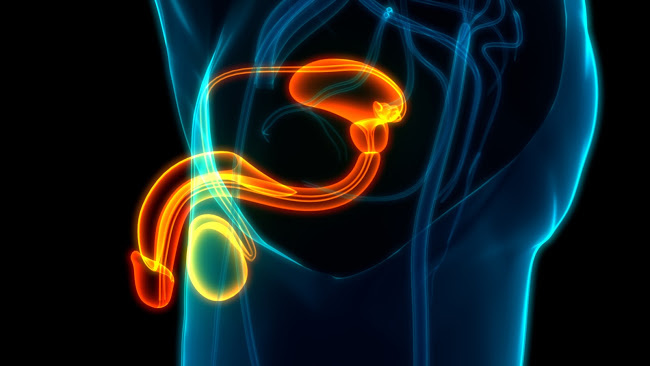
What is “Death Grip Syndrome” During Male Masturbation and How Might it Affect Partnered Sexual Activity?

“Death Grip Syndrome”, as it is commonly referred to, is a slang term referring to the overall desensitization of the penis due to frequent and rigorous masturbation, often with a lot of pressure being placed on the penis. Men in online communities often share they feel as though their penis is “broken”, “dead”. They have also expressed they have a hard time orgasming or feeling sensation and pleasure from masturbation or other sexual activity. However, this situation is not currently recognized in the medical community, resulting in a lack of research or resources.
Traumatic Masturbatory Syndrome
Despite the lack of research, there are several reasons that may be the cause for desensitization in the penis. The most closely related research available investigates traumatic masturbatory syndrome (TMS), which is viewed as a pattern of atypical masturbation that is usually conducted while lying face down (prone), either with a lot of pressure cupping the penis with a hand, or by rubbing the penis on the floor, bed, or a pillow. It has also been distinguished by frequency, with one study mentioning prone masturbation daily over a period of a few years is a good indicator of TMS.
At the very least, TMS is a known associate of erectile dysfunction (ED), which is the inability to have or maintain an erection firm enough and for long enough to participate in satisfactory sexual intercourse. TMS is also associated with premature ejaculation, delayed ejaculation, and anorgasmia (inability to orgasm).
Additionally, it may cause problems with pelvic floor muscles due to chronic overuse. This may lead to issues with incontinence, constipation, or an excessive need to use the restroom; a condition known as posttraumatic masturbatory syndrome (Post TMS). Interestingly, at least one TMS study has mentioned men’s struggles with reaching orgasm or becoming erect from sexual activities with intimate partners but expressing the ability to still orgasm and maintain an erection while masturbating, which may cause problems or tension in the relationship.
Other Reasons
If not from TMS, death grip syndrome could be associated with nerve damage in the penis, psychological issues relating to erectile function, or other complications related to penile numbness. While not always associated with a “death grip” (can result from brain injuries, penile surgeries, etc.), penile numbness prevents feelings of normal sensations like touch or stimulation and could also result from TMS or aggressive masturbation.
Death grip syndrome may also be indicative of a problem such as compulsive sexual behavior, a psychological issue which is characterized by an intense and uncontrollable focus on sexual fantasies, urges, or behavior. The frequency of masturbation could become problematic if it continues to increase with urges, causing harm to the penis, and potentially interfering with relationships.
Tips for Re-invigorating Your Sex Life
Partners in online communities have expressed that they feel like they are unable to satisfy their partner who may be experiencing sexual dysfunctions associated with death grip syndrome. Delayed ejaculation and anorgasmia have been the most commonly expressed stressors in the comment sections of some online forums, although usually mentioned under more colorful descriptions. This may be due to neurological conditioning that happens with frequent and aggressive masturbation, accustoming the body to accept only a few methods (such as a hand, intense speed, and aggressive movements) to achieve sexual pleasure or to reach orgasm. This may cause shame in an individual, making ED more likely. However, there are several techniques suggested to help re-sensitize the penis and promote overall sexual function:
- Openly communicate with your partner about your needs, struggles, and desires. They can’t help you unless you help them.
- Speak with a sexual health expert or therapist. These individuals are well equipped to assist you in your sexual health journey and with therapies for improving ED and other issues related to death grip syndrome.
- Consider trying a new masturbation method. A write-up detailing a treatment used for men with TMS demonstrated the use of mindfulness, temporary abstinence, and the reintroduction of new feelings and sensations to masturbation as a helpful plan for minimizing its effects.
- Consider cutting back on frequency of masturbation. One of the main problems highlighted about TMS is how often a person is masturbating. Perhaps if you are masturbating once per day, try cutting back to once a week and with less intensity.
- Consider pelvic floor exercises. A 2024 study found that pelvic floor and cognitive behavioral therapies were helpful in patients struggling from Post TMS.
Conclusion
While an unpopular topic in the medical field, death grip syndrome (in all its capacities) is still a good indicator of further sexual problems that may cause ED and related orgasmic dysfunctions. Factors like speed, frequency, and pressure all affect how the penis will react to touch or sensation during sexual activity, potentially interfering with intimacy and pleasure, and with sexual relationships. From the limited research on TMS, it is suggested that healthcare professionals begin asking and teaching about masturbation techniques when inquiring about ED and other orgasmic disorders. If you believe you may be struggling from death grip syndrome or TMS, do not hesitate to speak to a sexual health expert or therapist.
References
- Can, U., Kafkasli, A., Coskun, A., Canakci, C., Dincer, E., Tuncer, M., & Karatas, B. (2023). Traumatic masturbation and erectile dysfunction: A matched case–Control Study. International Journal of Urology, 30(12), 1134–1140. https://doi.org/10.1111/iju.15279
- Jammel, Dr. M. (2024b, November 27). Death grip syndrome - what is it and reverse technique. Fortius Health Clinic. https://www.fortiushealthclinic.com/blog/death-grip-syndrome-what-is-it-and-reverse-technique/
- Kafkasli, A., Yazici, O., Can, U., Coskun, A., Boz, M. Y., Karatas, B., & Kece, C. (2021). Traumatic masturbation syndrome may be an important cause of erectile dysfunction in pre‐mature ejaculation patients. Andrologia, 53(9). https://doi.org/10.1111/and.14168
- Mahishale, A., Mainuddin, J., & Prabha, V. (2024). Pelvic floor rehabilitation in posttraumatic masturbatory syndrome. Archives of Medicine and Health Sciences, 12(3), 413–417. https://doi.org/10.4103/amhs.amhs_250_23
- Mayo Foundation for Medical Education and Research. (2023, April 19). Compulsive sexual behavior. Mayo Clinic. https://www.mayoclinic.org/diseases-conditions/compulsive-sexual-behavior/symptoms-causes/syc-20360434
- MediLexicon International. (n.d.). Penile numbness: Causes, symptoms, and regaining sensitivity. Medical News Today. https://www.medicalnewstoday.com/articles/322694
- Sank, L. I. (1998). Traumatic masturbatory syndrome. Journal of Sex & Marital Therapy, 24(1), 37–42. https://doi.org/10.1080/00926239808414667
- Sank LI (2020) Traumatic Masturbatory Syndrome: A Proposed Treatment Protocol. JSM Sexual Med 4(6): https://www.jscimedcentral.com/public/assets/articles/sexualmedicine-4-1049.pdf
- What is erectile dysfunction?. Cleveland Clinic. (2025, March 19). https://my.clevelandclinic.org/health/diseases/10035-erectile-dysfunction





